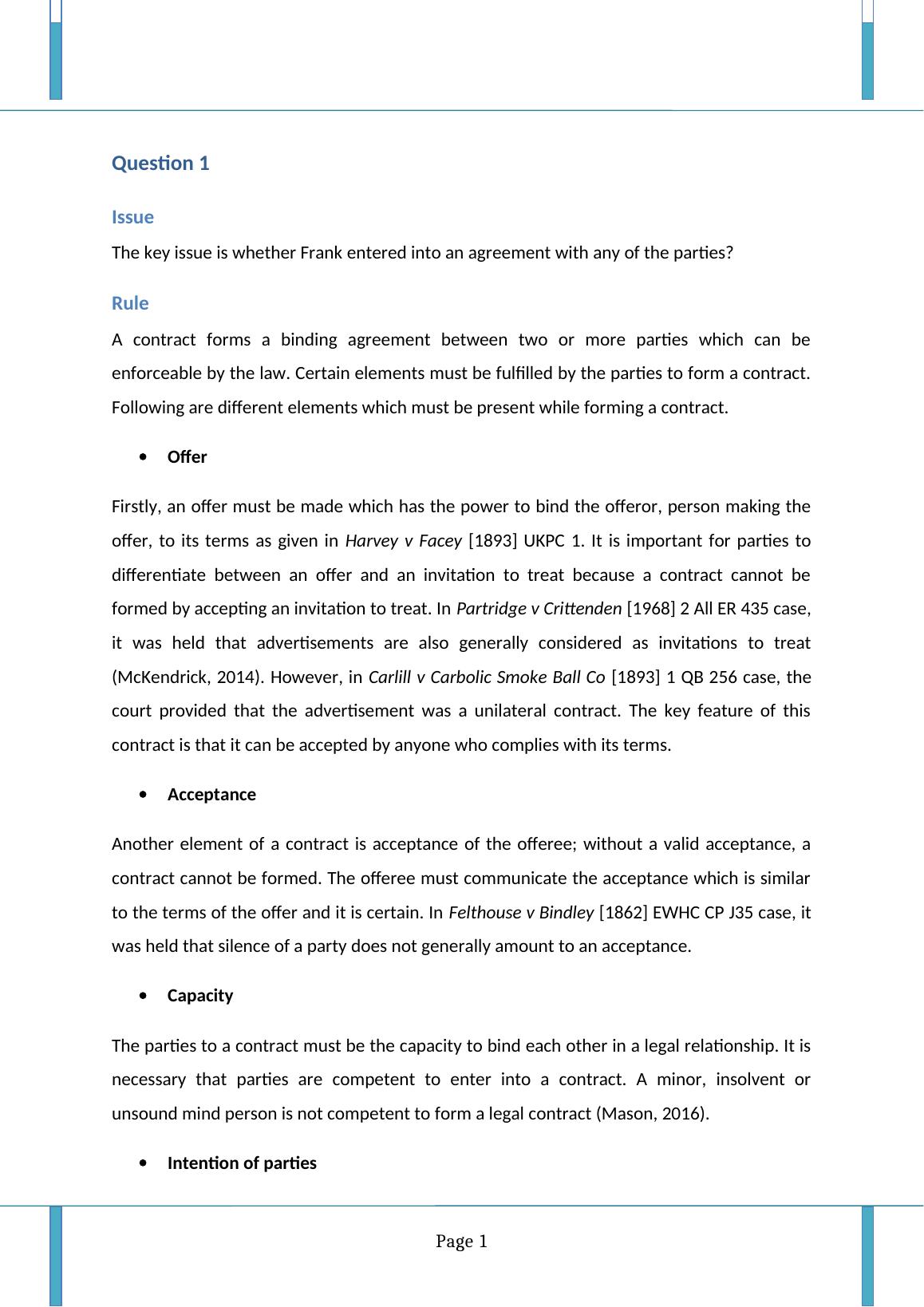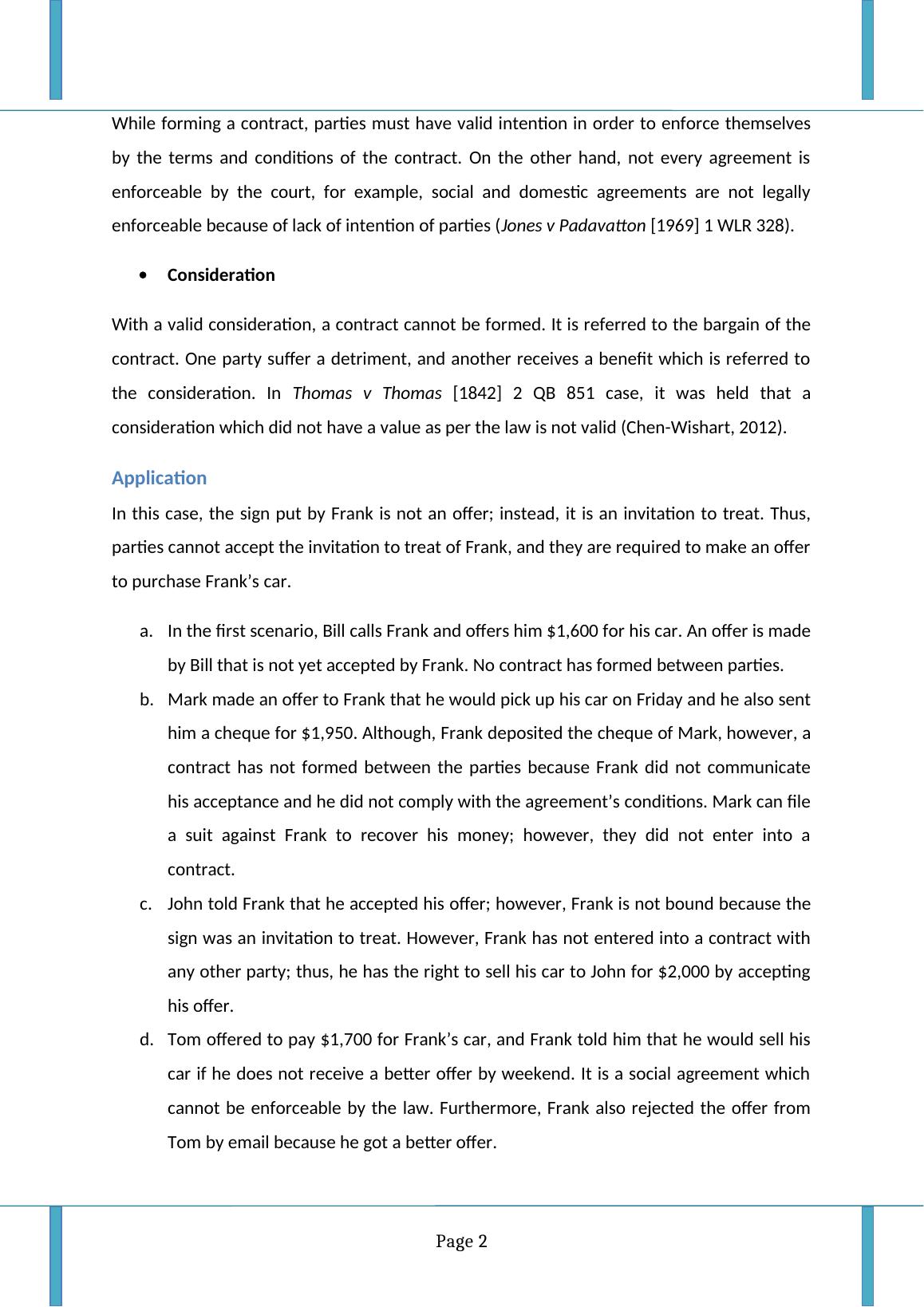Business Law Assignment: Contract Formation and Promissory Estoppel
Answering questions related to common law and equity principles in Australia concerning contracts and related transactions.
7 Pages1937 Words402 Views
Added on 2023-06-10
About This Document
This assignment discusses the elements of contract formation and the doctrine of promissory estoppel. It analyzes different scenarios and provides legal analysis based on relevant case laws. The first question discusses the formation of a contract based on different scenarios, while the second question analyzes the liability of Graphic Advertising Pty Ltd to pay promised increase and back pay to Renee based on the doctrine of promissory estoppel. The assignment includes relevant case laws and legal analysis.
Business Law Assignment: Contract Formation and Promissory Estoppel
Answering questions related to common law and equity principles in Australia concerning contracts and related transactions.
Added on 2023-06-10
ShareRelated Documents
End of preview
Want to access all the pages? Upload your documents or become a member.
Business Law Assignment
|8
|1926
|224
Contract Law Issue - Assignment
|6
|963
|73
Contract Law
|7
|1858
|78
Business Law: Validity of Contracts and Consumer Guarantees
|12
|2568
|198
Business Law: Contract Formation and Indoor Management Rule
|19
|2211
|302
Elements of a Contract and Intention to Create Legal Relations
|9
|2810
|375



